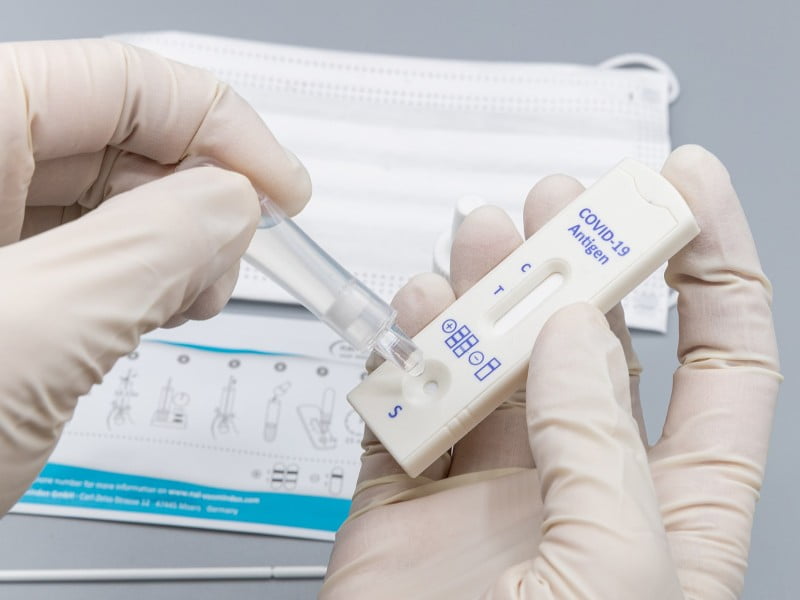Labor has pledged to increase the sovereign manufacturing of medical equipment and give priority to buying locally-made goods under a new election-pitch focusing on the shortage of rapid antigen tests.
Opposition Leader Anthony Albanese announced the manufacturing strategy on Sunday, saying there are short and long-term actions that need to be taken to address Australia’s sovereign risks with medical equipment and tests.
Pointing to the fact there are rapid antigen tests (RATs) being manufactured by Australian companies in Australia but being exported overseas, Mr Albanese said more critical medical supplies should be manufactured locally, including testing equipment, masks, PPE and ventilators.

If Labor wins the upcoming federal election, they will increase Australia’s sovereign manufacturing capacities in these fields, and give first priority to Australian-made medical technology when procuring it.
“We should be using this pandemic to maximise the opportunities that are here in Australia. Instead we have a circumstance whereby even though we do have RATs being produced in Australia they’re being exported overseas, rather than support being given to Australian companies,” Mr Albanese told the media on Monday morning.
“Australian businesses are innovative, Australians have been fantastic at research and science over a long period of time, we need a government that backs it.”
The Opposition Leader said he would instruct Labor’s proposed $15 billion National Reconstruction Fund to make medical technology a top priority, and work with the Future Made in Australia Office to develop an investment plan for healthcare essentials.
Shadow industry minister Ed Husic said Australia is lagging behind much of the rest of the world in sovereign manufacturing.
“That $15 billion of loans and equity can help provide an important source of finance for businesses and manufacturers that do want to be able to boost or increase or scale up their production to meet local needs,” Mr Husic told ABC News on Monday.
“We’re ranked amongst the lowest on manufacturing self-sufficiency. We’ve got to be able to address this and this is one thing that we put forward to help do that.”
In the short term, the government should act now to help local companies gain approvals to begin manufacturing and selling RATs in Australia, Mr Albanese said.
“We need to act right now and that means at the moment to ramp up the purchase of rapid antigen tests overseas, but right now we could be backing Australian businesses to make these products here. What we’ve seen is an Australian government that has just refused to engage,” he said.
“We saw the first orders from the Australian government for RATs placed in January. It’s extraordinary that three years into the pandemic we’ve seen no action from this government, and that’s why businesses across the sector are just incredibly frustrated because they could have been making things here.”
Earlier this month the federal government signed several contracts worth a total of $60 million for the supply of RATs. These contracts were to import RATs from overseas, mostly from China, while government departments have also gone it alone to purchase the tests.
There are a number of Australian companies capable of manufacturing RATs locally, and some are already doing so but exporting these overseas while they wait for approval from the Therapeutic Goods Administration (TGA).
While local industry waits to ramp up manufacturing, there are ongoing shortages of RATs around the country, which will likely be exacerbated by the return of schooling this week and testing requirements in New South Wales and Victoria.
Mr Albense on Sunday also said that Labor would provide a limited number of free RATs to all Australians through Medicare if the party wins the upcoming election.
Do you know more? Contact James Riley via Email.

